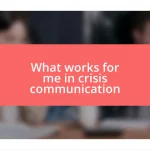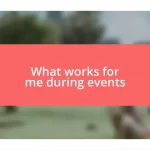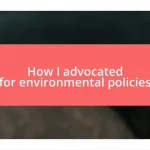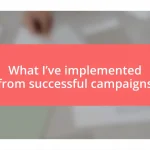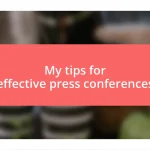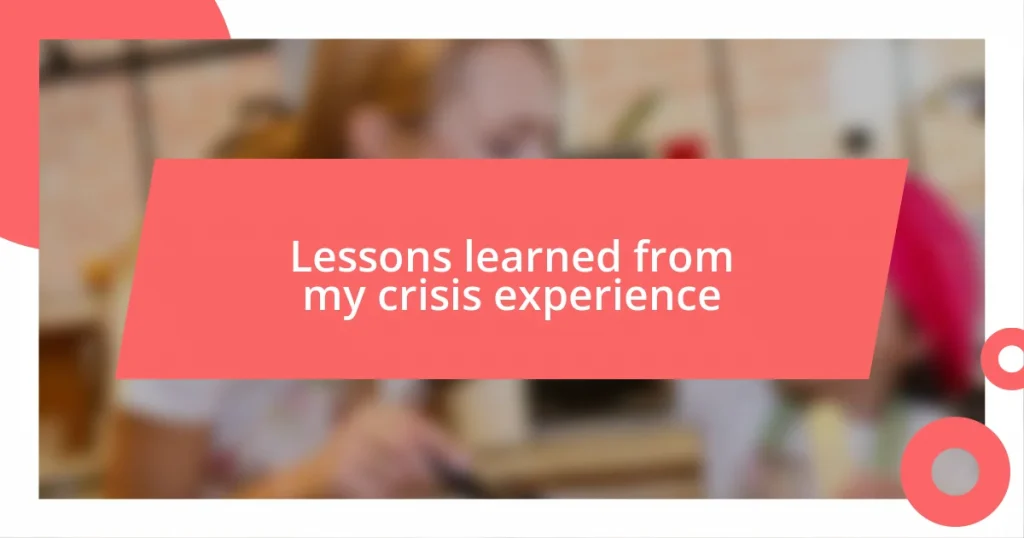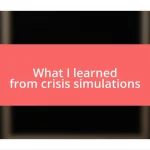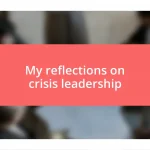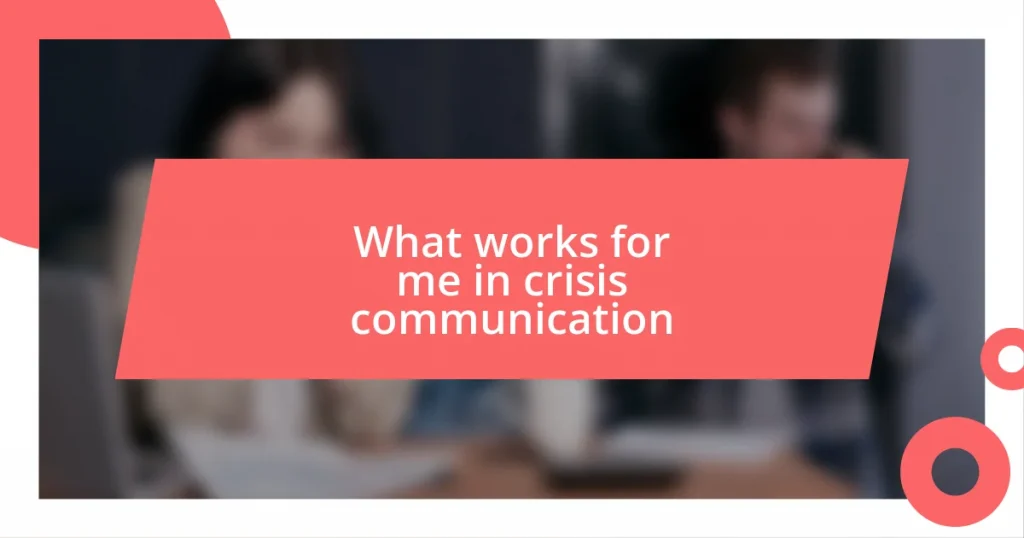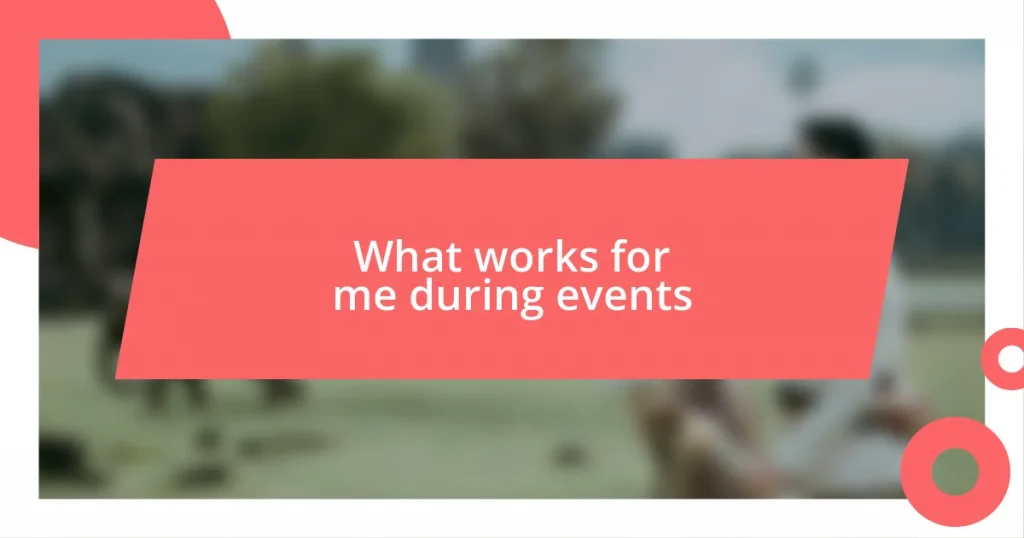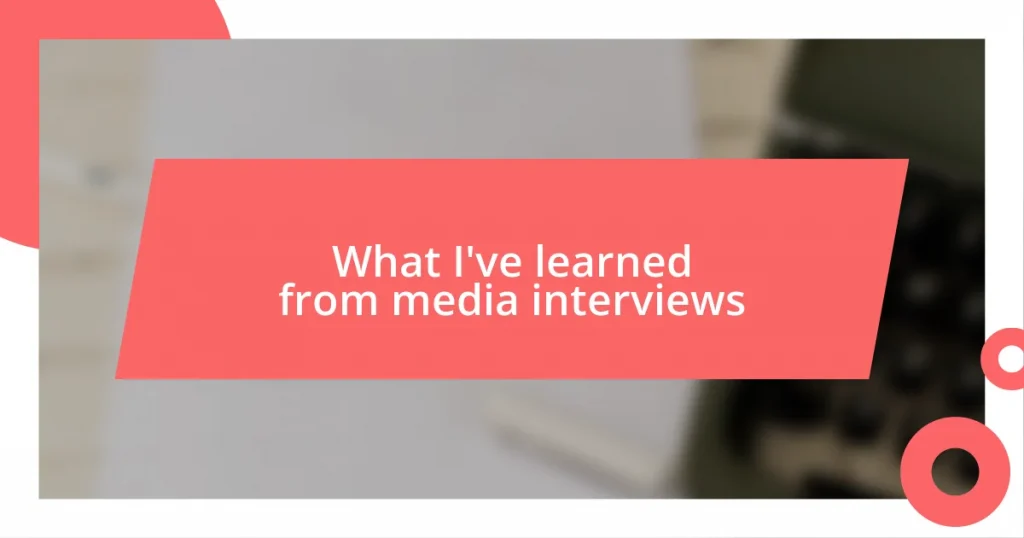Key takeaways:
- Understanding a crisis involves acknowledging personal responsibility and recognizing its impact on emotions and relationships.
- Identifying key lessons, such as embracing vulnerability and prioritizing self-care, serves as a roadmap for future resilience.
- Building a support network and engaging in proactive planning enhances preparedness and fosters growth during challenging times.
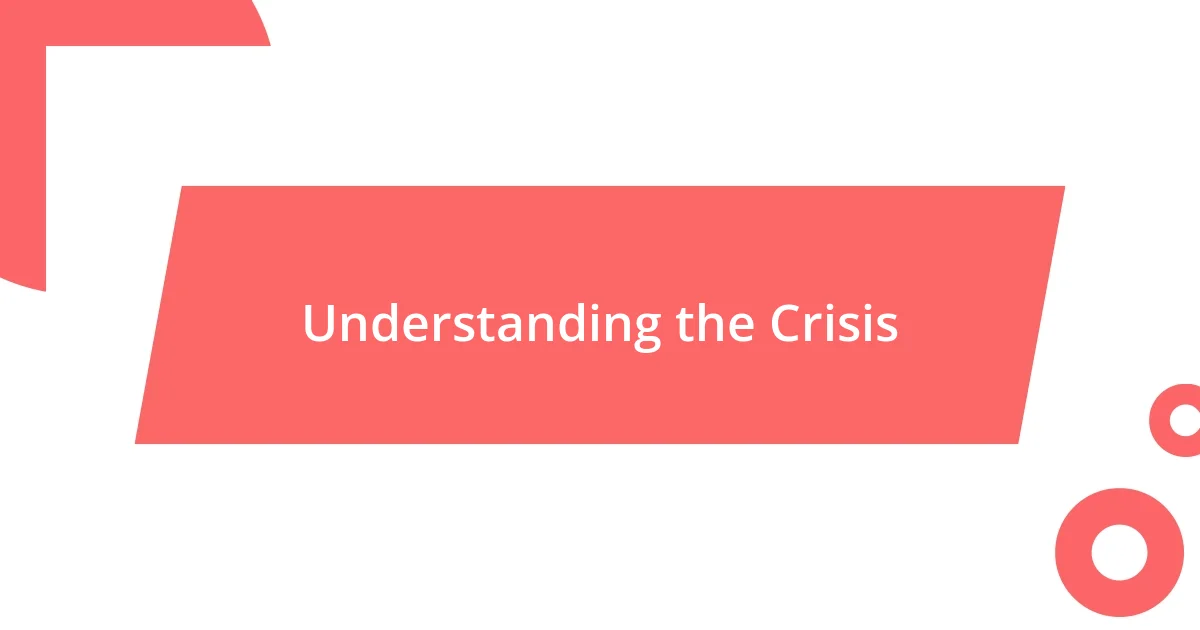
Understanding the Crisis
Understanding the crisis meant peeling back layers of emotion and turbulence. I remember sitting in silence, overwhelmed as I contemplated the magnitude of what was happening. I often wondered how I could let things spiral so far out of control—has that happened to you too?
It strikes me that crises rarely come as single, isolated incidents. For me, it was a culmination of unsaid truths and ignored red flags. Every time I dismissed a nagging feeling or a small issue, it was like piling bricks onto an already shaky foundation. Have you ever experienced that moment where you realize the cracks have become too deep?
Taking a step back allowed me to see that understanding the crisis was also about acknowledging personal responsibility. I had to confront the uncomfortable truth that I was part of the equation. Was it the fear of change that held me back? That realization—although painful—was incredibly powerful and became a catalyst for my transformation in how I approached difficulties in life.
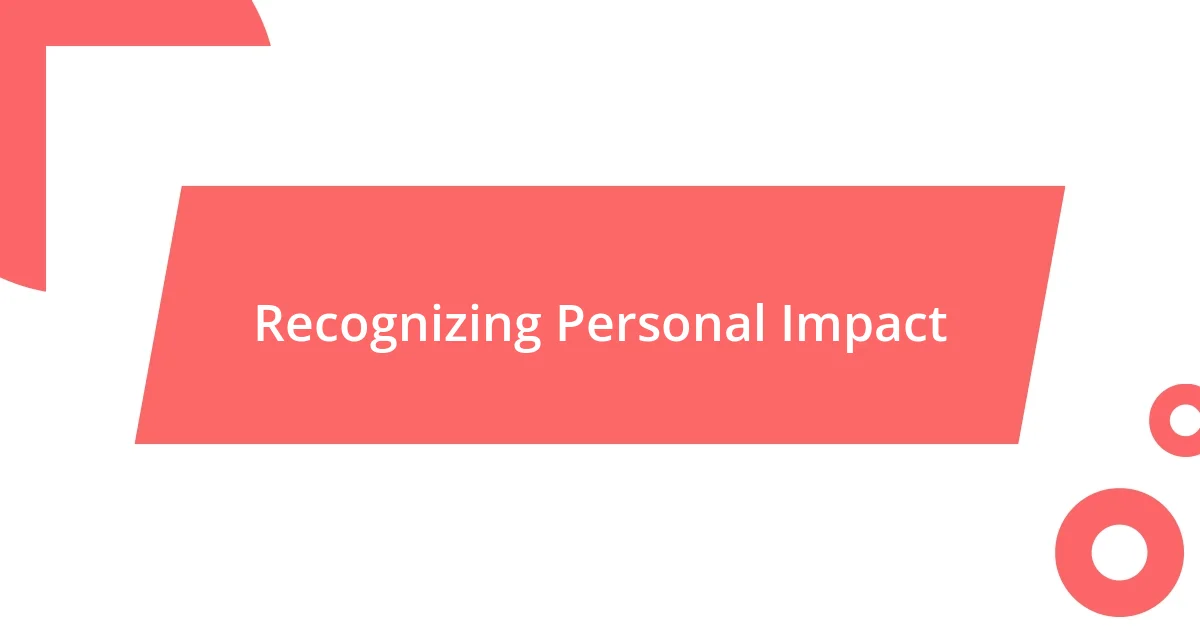
Recognizing Personal Impact
Recognizing how a crisis impacted me personally felt like peering into a mirror I had avoided for too long. I found that emotions I thought I had mastered were bubbling to the surface, demanding my attention. One instance that stands out was the night I couldn’t sleep, tossing and turning as memories of missed opportunities flooded in. Have you ever had a moment when the weight of regret became too heavy to bear?
I’ve often reflected on how my relationships were affected during this tumultuous period. Friends reached out, and I either pushed them away or struggled to express what I was going through. I remember vividly one evening when a close friend knocked on my door. Just standing there, I felt a profound disconnect; it was as if I was living in my own world, while everyone else continued to thrive. This isolation was a direct consequence of my inability to recognize the personal toll the crisis had taken.
As I navigated this turbulent time, acknowledging the personal impact was akin to unearthing buried treasure. I realized that my reactions, whether fear, sadness, or anger, were valid, bordering on enlightening. It was through journaling, often late at night, that I articulated these feelings, transforming chaos into clarity. Do you find writing helps you process your emotions, too?
| Impact on Emotions | Impact on Relationships |
|---|---|
| Heightened feelings of fear and regret | Strained connections with friends |
| Increased self-reflection and clarity | Challenges in communication |
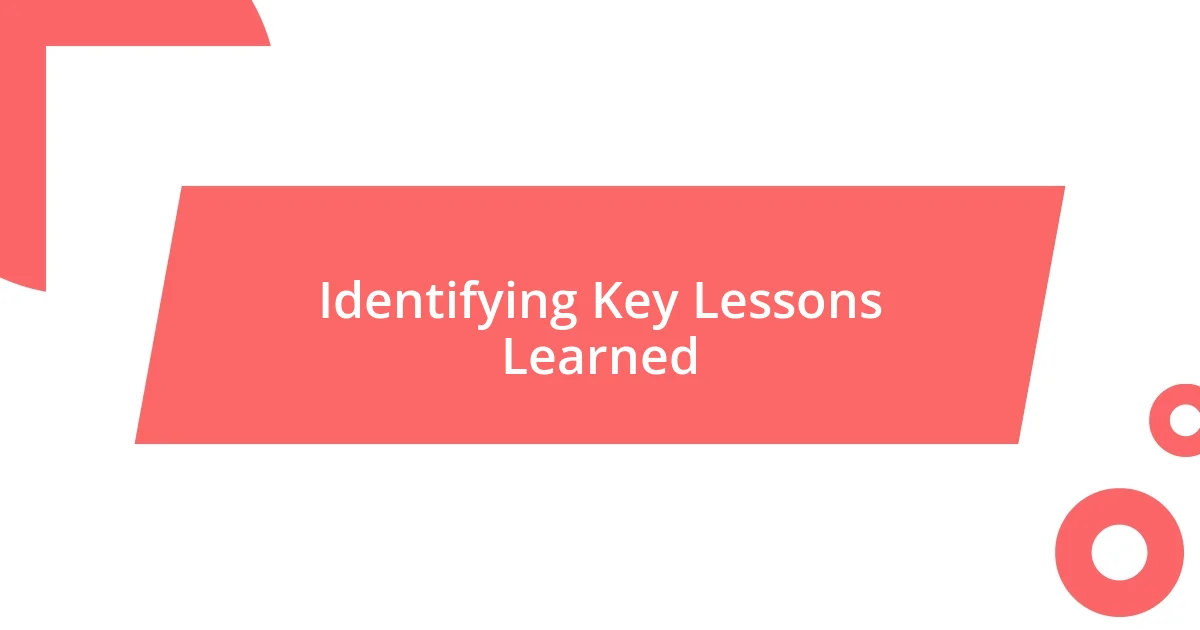
Identifying Key Lessons Learned
Identifying key lessons learned during a crisis is crucial for personal growth and future decision-making. I remember a specific moment when I realized that each challenge presented an opportunity to learn something valuable. It was during a particularly tough week that I started jotting down lessons, reflecting on my responses, and recognizing patterns in my behavior. Have you ever found that a crisis forces you to face what you normally avoid?
Here are some lessons I’ve gathered along the way:
- Embrace Vulnerability: I learned that showing my true emotions, rather than putting on a brave face, helped deepen my relationships.
- Avoiding Decisions Isn’t an Option: Procrastination only fueled my anxiety, and making timely decisions empowered me, even when outcomes were uncertain.
- Open Communication is Key: I found that sharing my experiences with trusted friends not only relieved my burden but also encouraged their openness in return.
- Self-Care Matters: I discovered that tending to my mental and physical health wasn’t a luxury; it became a necessity for navigating crisis moments.
- Learn to Set Boundaries: Recognizing when to say no became essential to protect my energy during challenging times.
Reflecting on these lessons has been enlightening. I now understand that identifying these key takeaways serves as a roadmap for navigating future difficulties. Each lesson feels like a stepping stone on my journey toward resilience. Have you also noticed how tough times can shape your perspective in unexpected ways?
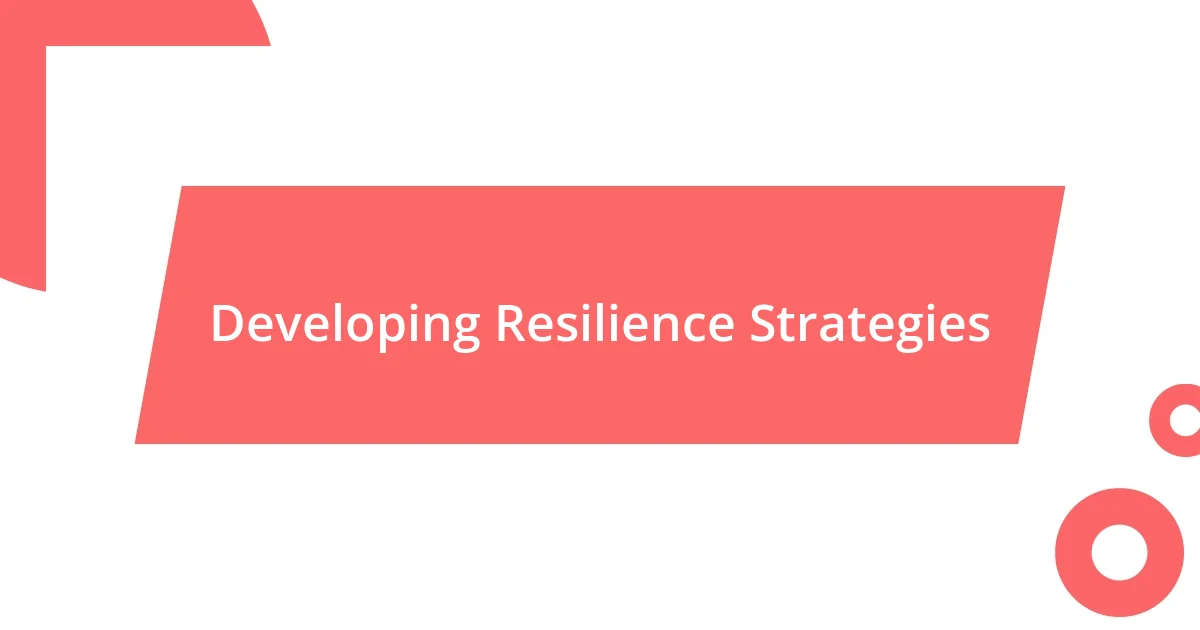
Developing Resilience Strategies
Developing resilience strategies is a journey I didn’t anticipate, but it became essential during my crisis. For example, I started practicing mindfulness to ground myself amidst chaos. One morning, as I sat in meditation, I realized how powerful it was to simply observe my thoughts without judgment. Have you ever felt a sense of calm wash over you by just being present?
Another strategy that emerged was building a support network. I discovered that sharing my struggles with close friends made me feel less isolated. There was a time when I reached out to a mentor after a particularly difficult day, and just hearing their perspective shifted my mindset. Connecting with others who understand your struggles can provide insights and encouragement that you might not achieve alone.
I also embraced the power of setting small, achievable goals. Breaking down overwhelming tasks into bite-sized pieces gave me a sense of control that was crucial during the ups and downs. One day, I committed to writing for just ten minutes rather than looking at the daunting task ahead. That small but mighty shift in focus sparked my creativity and helped me regain momentum. Have you found that simply taking one step forward makes the path ahead feel more navigable?
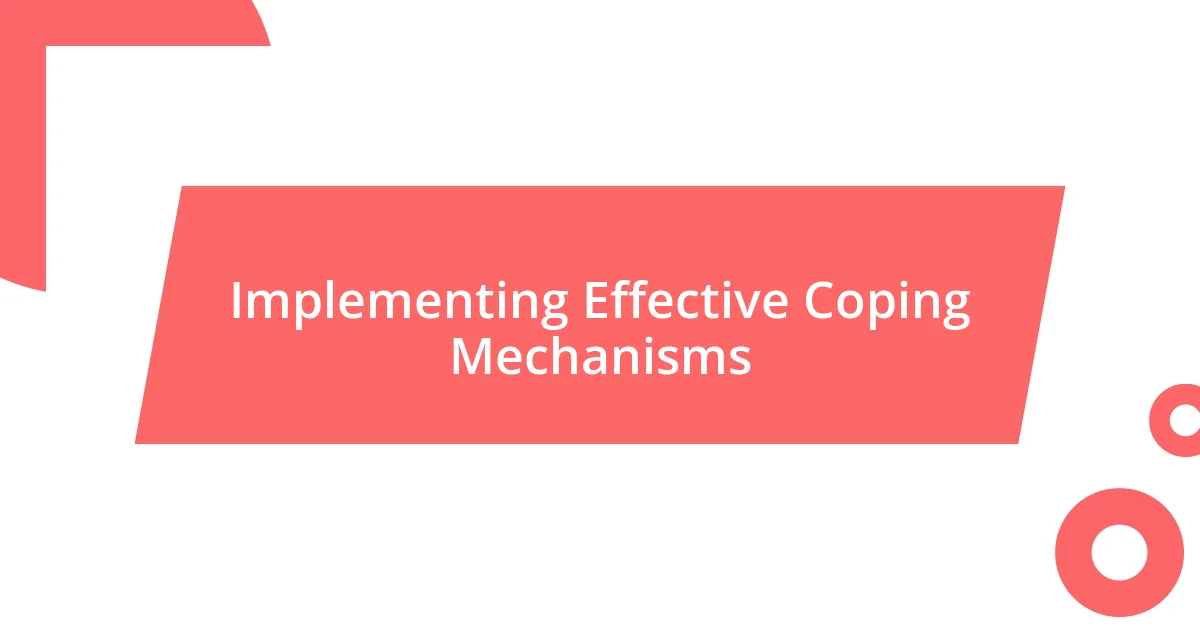
Implementing Effective Coping Mechanisms
Implementing effective coping mechanisms became a lifeline for me during my crisis. I vividly remember a night when I felt completely overwhelmed. To navigate that emotional storm, I turned to journaling. Pouring my thoughts onto the page felt liberating, almost like a weight lifting off my shoulders. Have you ever experienced a moment where putting pen to paper just made everything clearer? It’s remarkable how articulating our feelings can help us gain perspective and clarity.
Another powerful mechanism I adopted was physical activity. I found that going for a run not only got my blood pumping but also cleared my mind. One particular evening, as I ran through my neighborhood, the rhythmic sound of my feet against the pavement became a soothing mantra. This simple act of movement transformed my anxiety into energy. Do you remember a time when physical exertion changed your mood drastically? For me, it was a great reminder that our bodies and minds are intimately connected.
Mindfulness practices, such as deep breathing and meditation, also became essential tools. There was a moment during a particularly stressful week when I felt the familiar tightness in my chest. Instead of surrendering to panic, I took a few minutes to focus on my breath. Each inhale brought in calm, and each exhale released tension. This practice not only helped ground me but also created space for self-compassion. Have you tried breathing exercises to navigate your emotions? They can be immensely powerful in those fleeting moments of chaos.
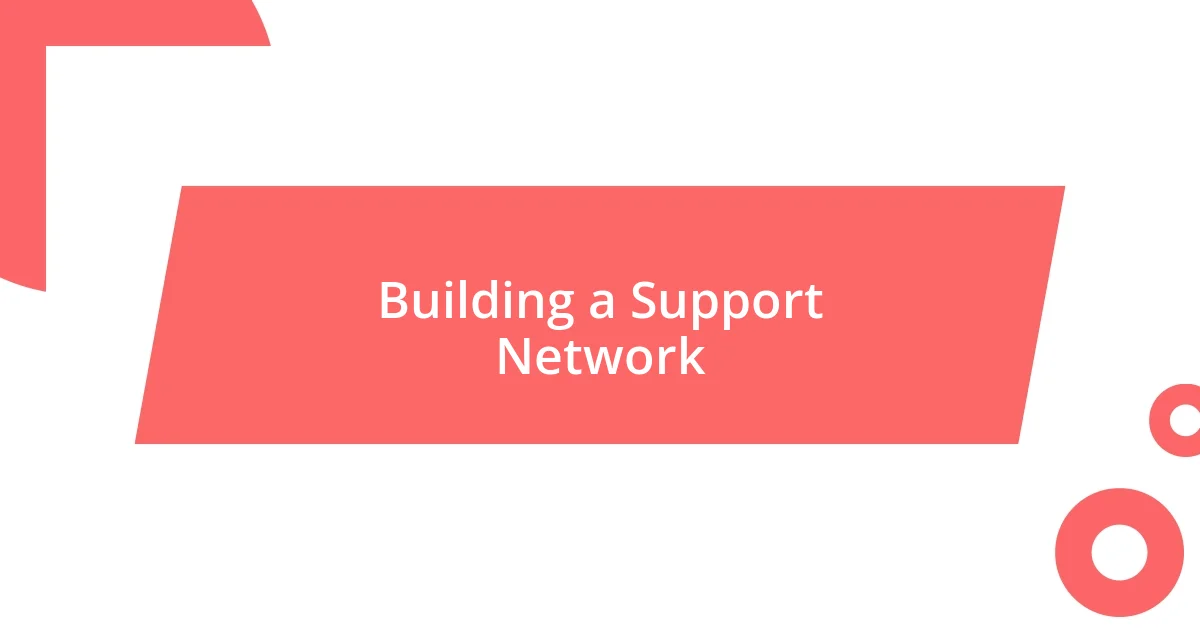
Building a Support Network
Building a support network has been transformative for me during my toughest times. I still remember meeting a close friend for coffee, feeling overwhelmed by everything going on in my life. Just talking about my feelings and hearing her similar experiences lightened my emotional load, and it struck me how vital it is to have someone who truly listens. Have you ever felt that instant relief when you can open up to someone about your struggles?
Connecting with others also led me to unexpected friendships. One evening, at a community event, I started chatting with someone who shared my passion for art and creativity. Over time, these conversations turned into a collaborative project that not only kept my mind engaged but also fostered a sense of belonging. This reminded me that support can flourish in the most surprising places. Can you think of a time when you made a meaningful connection that changed your perspective?
Additionally, I discovered the significance of seeking professional support. When I found myself in a particularly dark moment, I reached out to a therapist. The guidance and fresh perspective they provided helped me navigate my feelings more effectively. It’s essential to remember that asking for help is a sign of strength. Have you ever sought outside support that made a difference in your life? Embracing this step was a game-changer for me.
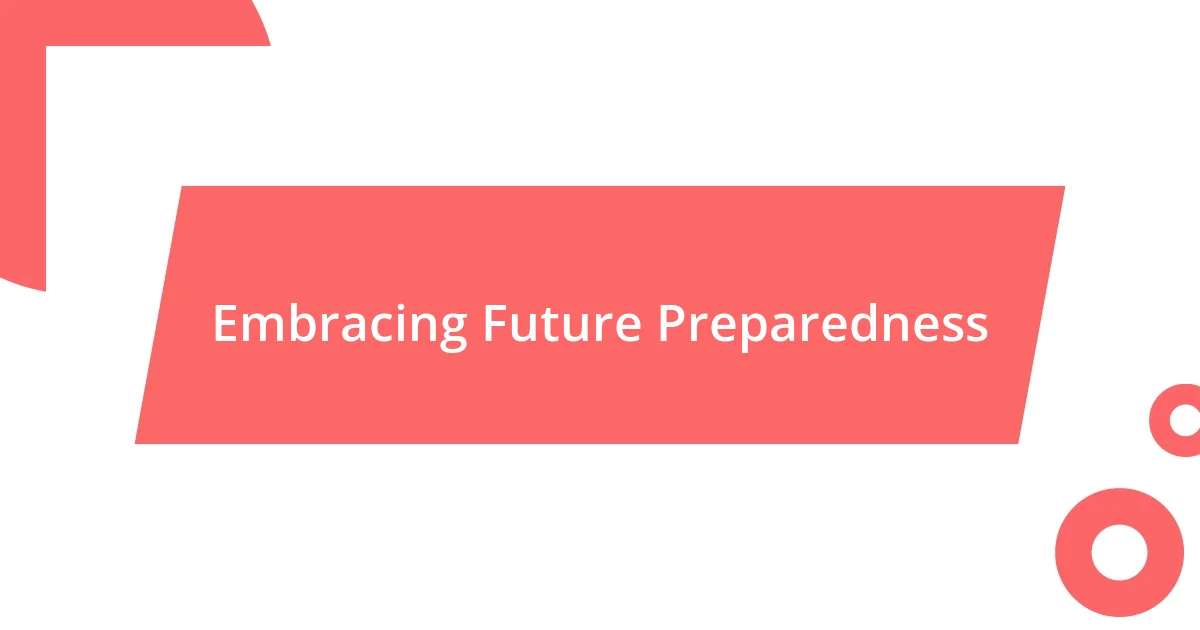
Embracing Future Preparedness
Embracing future preparedness has become a cornerstone of my personal growth. After my crisis experience, I realized that the uncertainty of life can often feel overwhelming. It sparked an idea in me: why not develop a plan for those unpredictable moments? One afternoon, I sat down with a cup of tea, jotting down contingencies for different scenarios. This practice not only calmed my anxiety but also empowered me. Have you ever felt a surge of confidence from taking proactive steps toward your future?
In addition to planning, I recognized the importance of continuous learning. I began attending workshops on resilience and adaptability, each one opening my eyes to new tools and strategies. There was one session where we explored different problem-solving techniques, and I remember leaving with a renewed sense of optimism. I now seek out learning opportunities that challenge my thinking. What’s the last workshop or class that sparked your curiosity and inspired you?
Lastly, implementing regular reflection has bolstered my preparedness. I set aside time each week to evaluate my experiences, identifying lessons learned and areas for improvement. During one of my reflections, I discovered how far I had come—from feeling lost to actively engaging with my future. This process helps me stay grounded and adaptable when faced with new challenges. Have you ever considered how reflecting on past experiences can inform your future choices? It’s an enlightening journey.
